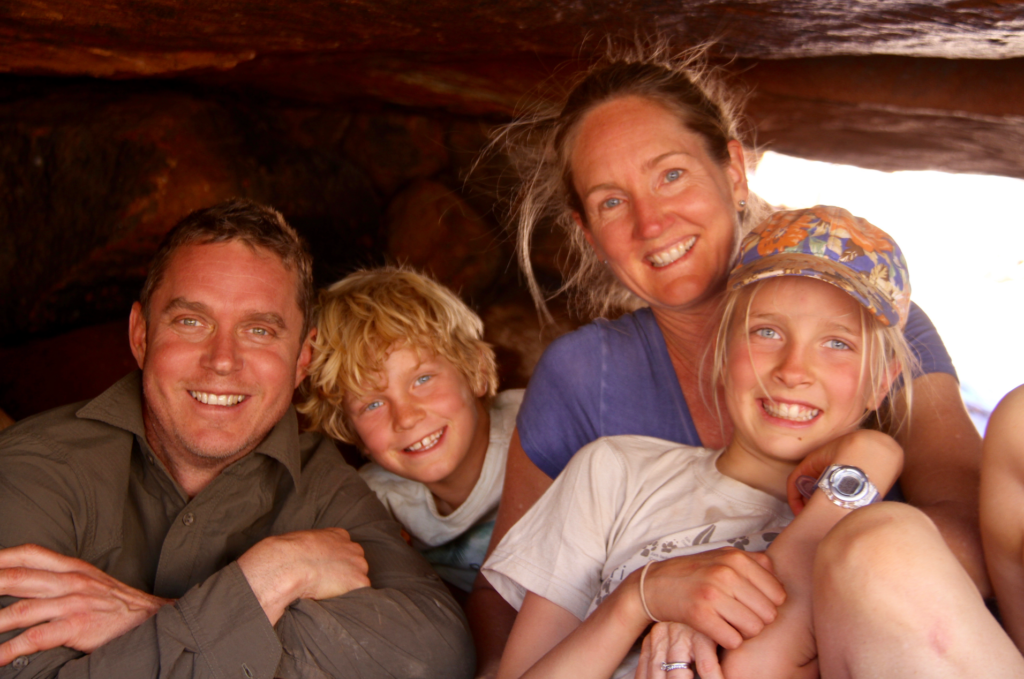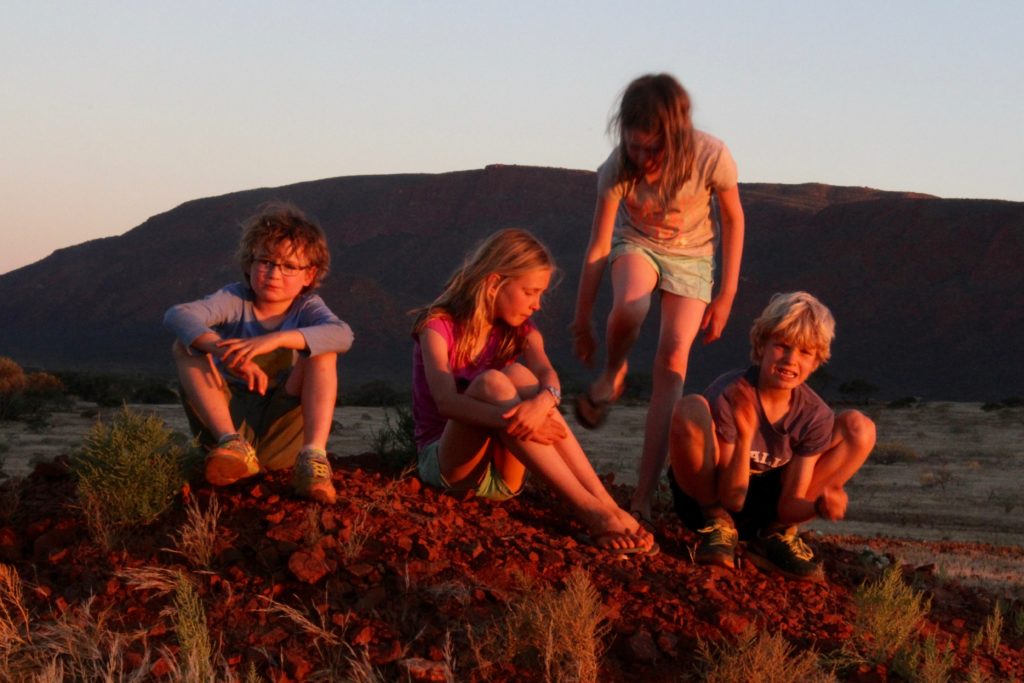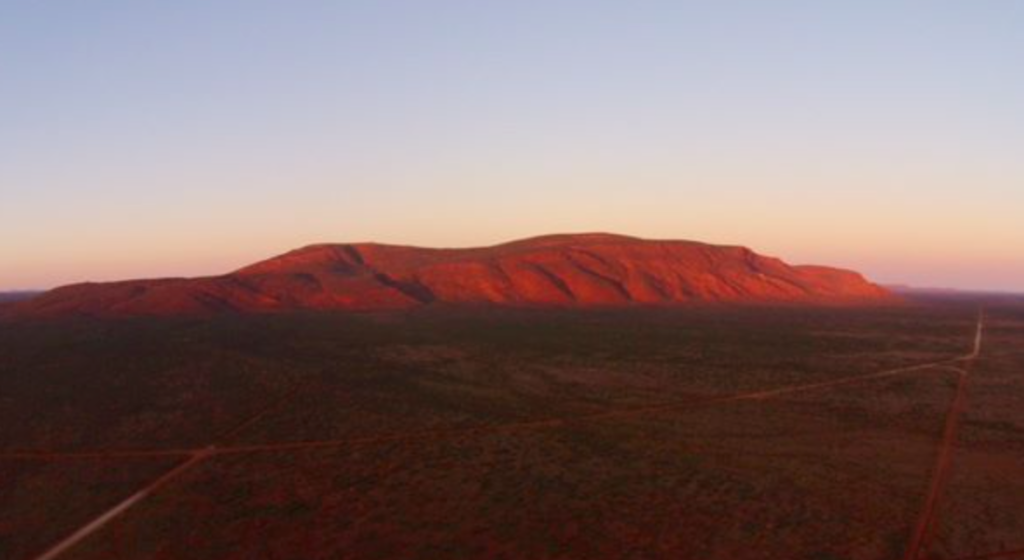Are we de-sensitising? What I learnt camping.
October 10, 2016 | by kateb | 0 comments
'The world is full of magic things patiently waiting for our senses to grow sharper'
~ W.B. Yeats
After returning from 10 days camping in outback Western Australia, I want to share where we went because I’ve discovered not many have heard of it (even Western Australian Tourism)! And it is incredible. I’m a proud West Aussie and feel that you need to know that we have this natural wonder in our ‘backyard’.
Burringurrah, the aboriginal name for Mount Augustus is recognised as the worlds’ largest rock (monolith), yes, bigger than Uluru! Erupting out of the landscape in the middle of Western Australia it is surrounded by a vast expanse of shrub and red, (very red) dirt, hikes, aboriginal history and engravings – clearly a place of significance for many thousands of years. If you haven’t visited and get a chance it’s well worth it.
Like any good holiday we know how good it is to ‘get away’. Camping especially has the power to transport us back in time (without tech and wifi access) and reconnect us to the land, sun, moon, stars and elements - and the timelessness it has for us to explore.
It was without conveniences, but was total bliss. Although afterwards a hot shower and clean clothes have NEVER felt so good.
What it did for us was to stimulate our senses. Being outside each day, looking long distances, taking time for food, listening to what’s going on around us. Senses that historically, are fundamental for life (i.e. survival) and these days can easily become dormant while living our busy, city lives.
In fact - are we de-sensitising?
Perhaps we are. Keep reading to find out why...

To be healthy is to be in our most natural element and to do this we need to keep using our senses.
(And perhaps there are more than five e.g. intuition, however I’ll talk about the five for now).
From an evolutionary perspective, are we losing our senses?
- Sight. Our eyes are designed to look long distances, out to the horizon. Yet most of us sit in an office, class-room or in the home, spending much of our day inside or looking at a computer screen at short range.
- Hearing. Our hearing is critical for detecting danger, yet there is so much ‘noise’ around us, we ‘switch off’ no longer listening out for the natural world. It’s difficult to really ‘hear’ what’s going on around us above the noise of cars, technology and modern life. Dementia patients can regain their memory when hearing their favourite music. Sound can bring us back to life.
- Smell. A friend recently shared a story about a Scientist friend of theirs who had visited an aboriginal community looking for a native and endangered plant. He asked the woman elder if she had seen the plant species? With that the elder disappeared and returned thirty minutes later with a specimen of the plant! He was horrified she had picked it, but he was also intrigued as to HOW she found it? She told him she had smelt it and quickly squished a couple of leaves in the palm of her hand for him to smell. While we no longer need an acute sense of smell such as this, we have also LOST this acute sense of smell purely because we no longer use it.
- Taste. Our food has become processed, with our palates narrowing, especially for our children. Dominated by sweetness, tastes such as bitter, sour, salty and umami (savoury) are neglected but important not only nutritionally but for feeding a healthy microbiome and for stimulating our digestive and elimination pathways. Historically we didn’t have such a large choice and had to eat a more varied (and often healthier) diet.
- Touch. Our lives are busy and we have little time to stop and really FEEL touch. To feel the wind in our hair, the sun on our skin, the rhythms of nature or to take time to enjoy a good hug or to feel our different emotions that bubble to the surface throughout the day.
Our senses literally have the power to wake us up and to bring us alive.
Importantly, there is a common thread that each of these senses has the power to affect. It is our brains i.e. our nervous systems and stress.

With stress being one of the biggest contributors to disease, when we’re not broadly stimulating our senses we’re not stimulating our brains and quite possibly become more intolerant to stress.
It’s not difficult, it’s just that it’s easy not to. Most of these senses and experiences can be satisfied simply and by going outside or with a few simple ideas e.g.
- keep windows open - even a small amount
- have lunch outside
- consciously enjoy a variety of natural whole foods and flavours
- host meetings outside or on a walk! (check out the happiness hunters fantastic work).
- buy a few more indoor plants
- spend time in the garden and plant herbs and plants with beautiful aromas
- walk the dog
- work outside
- get up early, listen to the quiet and get a head start on the day making it less hectic with more time to BE, rather than do.
- exercise outside and move each day
- meditate
- disconnect from work when the kids are with me and connect with them
- unplug on Sundays – totally and use your eyes for long distance
- walk to school with the kids
- spend time outside the city
- go away for more weekends away (technology free)
- when possible plan for more holidays with great cultural and life experiences
- and a favourite is using essential oils. They have the power to stimulate touch, smell, taste, immediately shift emotions and enhance wellbeing and much more…
- go camping!
Which of your senses do you instinctively feel needs a bit more use?
Start with choosing one you instinctively feel needs more attention and exercise it more. What will you start adding into your day? Let me know how you go. I’d love to hear.

